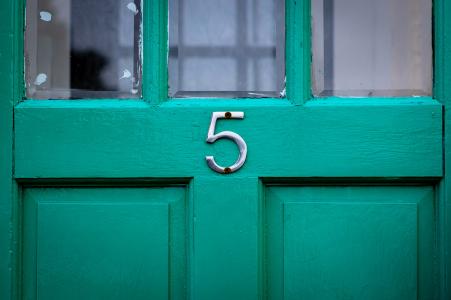
5 Essential Things Every First-Time Homebuyer Should Do
This content was originally published on August 28, 2016, and updated on October 30, 2023.
Buying your first home is exciting! But it’s easy to make mistakes, too. Savvy homebuyers can achieve the best results by following these five guidelines.
1. Don’t fall in love with a house.
When shopping for your first home, it’s okay to pick a favorite, but also consider other properties that meet your needs and fall within your price range. Determine, as objectively as possible, which home would be best now—and in the future.
“Falling” for a house means you are putting yourself at a negotiating disadvantage and that you may overlook significant issues or defects. Until you move in, consider the house a “tool” for living. There’s plenty of time to fall in love later.
2. Buy with resale in mind.
When you purchase your first house, you may think you’ll never want to leave it. But for most people, a first home is a financial stepping stone.
Try to ensure you buy in an area where home values are increasing, not declining. Look for proximity to parks, shopping, and other perks that will improve the home’s resale value.
Also, be cautious about buying a home overbuilt for the neighborhood. If it’s the largest, most expensive property on the block, it may be harder to get your desired resale price than a home that more closely matches the size and cost of other properties.
3. Budget for repairs.
If you find the home you want, but repairs are discovered during the negotiation process (like the air conditioner isn’t working correctly or the roof has a small leak), you may be tempted to move forward anyway.
But these repairs can become a significant burden, especially if you’re already stretching your budget to make monthly mortgage payments. If you still want the house, try to negotiate with the seller to have those items fixed or to reduce your purchase price by the amount of the needed repairs.
4. Get your finances in order first.
Shopping for a home can be exhilarating! But you might encounter disappointing setbacks if you haven’t put your financial house in order first.
Review your credit report before talking to any potential lenders. Pay down your debt and keep some money in the bank. Talk to lenders and get pre-approved for a loan.
This way, if you encounter any financial issues, you can resolve them in advance and potentially improve your negotiating position. You will feel confident about how much you can truly afford to spend on a home and can begin looking for one in earnest!
5. Investigate financial programs and incentives for first-time buyers.
If you are buying your first home, you may be able to get help from your local, state, or federal government. Some programs provide down payment assistance, whereas others offer more attractive financing options.
For example, FHA loans (mortgages insured by the Federal Housing Administration) can make financing more accessible and affordable, especially for people with lower credit scores or smaller down payments.
A qualified buyer’s representative—a REALTOR® who has earned their Accredited Buyer’s Representative (ABR®) designation—can guide you through all the steps to purchase your first home, including assistance programs in your area.
They’ll help you ask all the right questions, consider all your options, and point out the pros and cons of any house you are considering. Plus, it’s easy to find one in your area.
